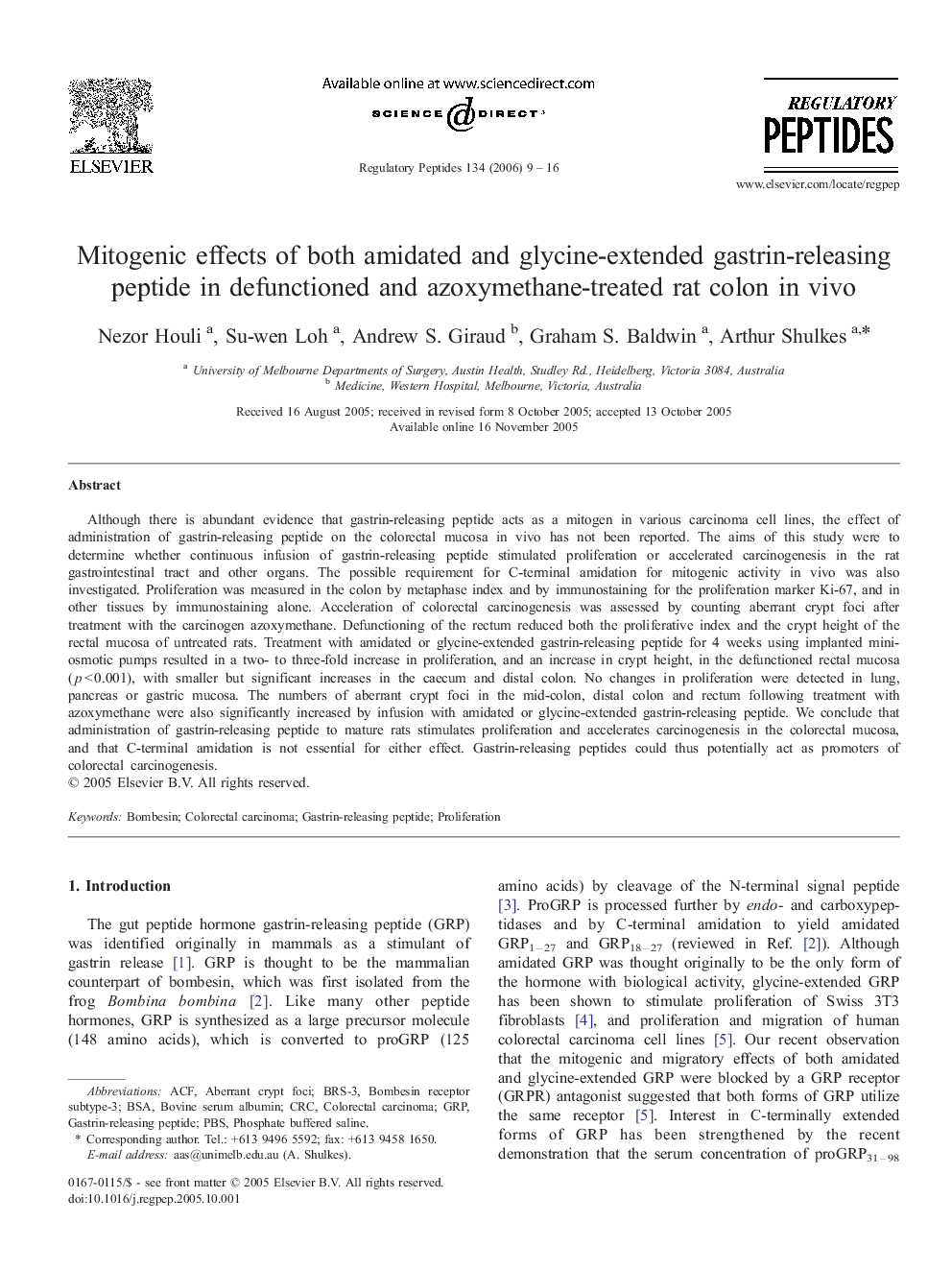| کد مقاله | کد نشریه | سال انتشار | مقاله انگلیسی | نسخه تمام متن |
|---|---|---|---|---|
| 2023562 | 1069490 | 2006 | 8 صفحه PDF | دانلود رایگان |

Although there is abundant evidence that gastrin-releasing peptide acts as a mitogen in various carcinoma cell lines, the effect of administration of gastrin-releasing peptide on the colorectal mucosa in vivo has not been reported. The aims of this study were to determine whether continuous infusion of gastrin-releasing peptide stimulated proliferation or accelerated carcinogenesis in the rat gastrointestinal tract and other organs. The possible requirement for C-terminal amidation for mitogenic activity in vivo was also investigated. Proliferation was measured in the colon by metaphase index and by immunostaining for the proliferation marker Ki-67, and in other tissues by immunostaining alone. Acceleration of colorectal carcinogenesis was assessed by counting aberrant crypt foci after treatment with the carcinogen azoxymethane. Defunctioning of the rectum reduced both the proliferative index and the crypt height of the rectal mucosa of untreated rats. Treatment with amidated or glycine-extended gastrin-releasing peptide for 4 weeks using implanted mini-osmotic pumps resulted in a two- to three-fold increase in proliferation, and an increase in crypt height, in the defunctioned rectal mucosa (p < 0.001), with smaller but significant increases in the caecum and distal colon. No changes in proliferation were detected in lung, pancreas or gastric mucosa. The numbers of aberrant crypt foci in the mid-colon, distal colon and rectum following treatment with azoxymethane were also significantly increased by infusion with amidated or glycine-extended gastrin-releasing peptide. We conclude that administration of gastrin-releasing peptide to mature rats stimulates proliferation and accelerates carcinogenesis in the colorectal mucosa, and that C-terminal amidation is not essential for either effect. Gastrin-releasing peptides could thus potentially act as promoters of colorectal carcinogenesis.
Journal: Regulatory Peptides - Volume 134, Issue 1, 15 March 2006, Pages 9–16